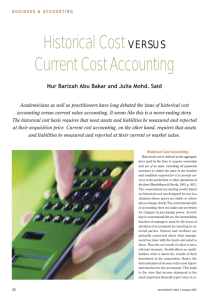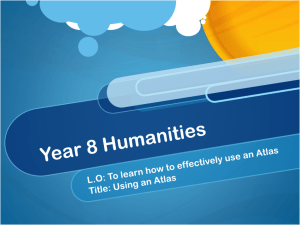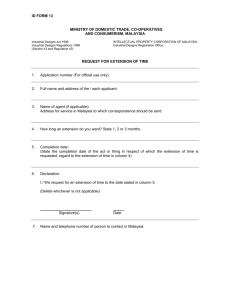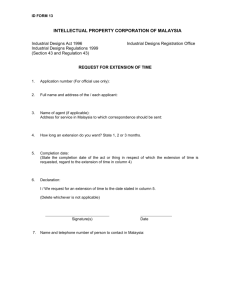government finances. For zakah administrators who are under
advertisement
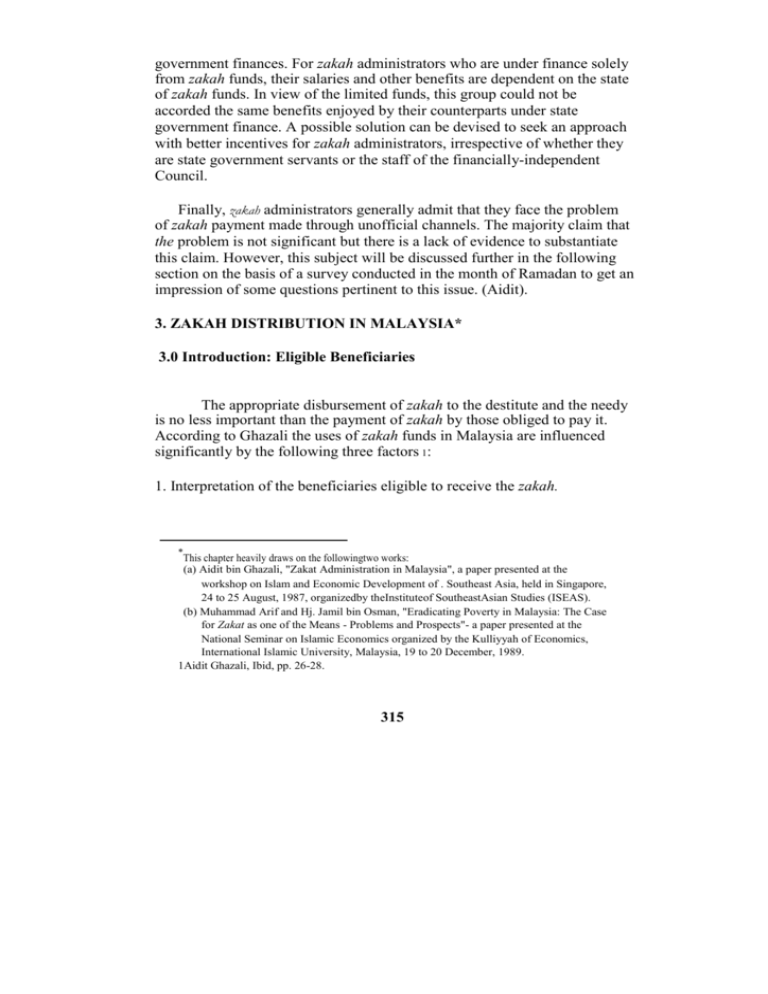
government finances. For zakah administrators who are under finance solely from zakah funds, their salaries and other benefits are dependent on the state of zakah funds. In view of the limited funds, this group could not be accorded the same benefits enjoyed by their counterparts under state government finance. A possible solution can be devised to seek an approach with better incentives for zakah administrators, irrespective of whether they are state government servants or the staff of the financially-independent Council. Finally, zakah administrators generally admit that they face the problem of zakah payment made through unofficial channels. The majority claim that the problem is not significant but there is a lack of evidence to substantiate this claim. However, this subject will be discussed further in the following section on the basis of a survey conducted in the month of Ramadan to get an impression of some questions pertinent to this issue. (Aidit). 3. ZAKAH DISTRIBUTION IN MALAYSIA* 3.0 Introduction: Eligible Beneficiaries The appropriate disbursement of zakah to the destitute and the needy is no less important than the payment of zakah by those obliged to pay it. According to Ghazali the uses of zakah funds in Malaysia are influenced significantly by the following three factors 1: 1. Interpretation of the beneficiaries eligible to receive the zakah. * This chapter heavily draws on the followingtwo works: (a) Aidit bin Ghazali, "Zakat Administration in Malaysia", a paper presented at the workshop on Islam and Economic Development of . Southeast Asia, held in Singapore, 24 to 25 August, 1987, organizedby theInstituteof SoutheastAsian Studies (ISEAS). (b) Muhammad Arif and Hj. Jamil bin Osman, "Eradicating Poverty in Malaysia: The Case for Zakat as one of the Means - Problems and Prospects"- a paper presented at the National Seminar on Islamic Economics organized by the Kulliyyah of Economics, International Islamic University, Malaysia, 19 to 20 December, 1989. 1Aidit Ghazali, Ibid, pp. 26-28. 315

